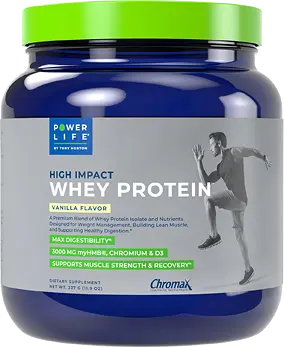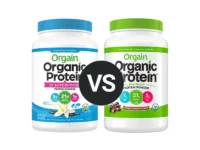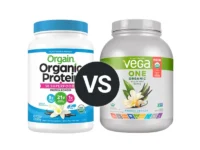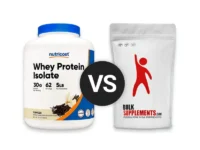Knowledge BaseYou're Questions Answered
Can protein powder help with depression?
While protein powder itself is not a treatment for depression, certain components within protein powders, particularly amino acids, may have a beneficial impact on mental health. Depression is a complex condition influenced by various factors, including genetics, environment, and biochemistry. Proper nutrition, including adequate protein intake, can play a supportive role in overall mental well-being.
Amino Acids and Neurotransmitters
Proteins are made up of amino acids, some of which are precursors to neurotransmitters in the brain. For example, tryptophan is an essential amino acid found in protein-rich foods and protein powders that serves as a precursor to serotonin, a neurotransmitter associated with mood regulation. Low levels of serotonin have been linked to depression1. Similarly, tyrosine, another amino acid, is a precursor to dopamine and norepinephrine, which are also involved in mood and cognitive functions2.
Role of Protein Powders
Protein powders, such as whey and casein, contain these essential amino acids and can be an easy way to ensure adequate intake, especially for individuals with dietary restrictions or increased protein needs. Whey protein, in particular, has been studied for its potential mood-enhancing properties. Some studies suggest that whey protein can increase levels of tryptophan and serotonin in the brain, potentially improving mood and reducing stress3. Additionally, protein intake can help stabilize blood sugar levels, which is important for maintaining consistent energy and mood throughout the day.
Considerations and Limitations
It is important to note that while protein powders can support overall nutrition, they should not be seen as a standalone solution for depression. A holistic approach that includes a balanced diet, regular exercise, adequate sleep, and professional mental health support is essential for managing depression. Consulting with a healthcare provider before making any significant changes to your diet or using supplements is recommended.
Ultimately, while protein powders can contribute to a well-rounded diet and support mental health through the provision of essential amino acids, they are not a cure for depression. Addressing depression requires a comprehensive approach tailored to the individual's needs.
- Richard, D. M., Dawes, M. A., Mathias, C. W., Acheson, A., Hill-Kapturczak, N., & Dougherty, D. M. (2009). L-Tryptophan: Basic metabolic functions, behavioral research and therapeutic indications. International Journal of Tryptophan Research, 2, 45-60.
- Fernstrom, J. D. (2000). Can nutrient supplements modify brain function? The American Journal of Clinical Nutrition, 71(6), 1669S-1673S.
- Markus, C. R., Olivier, B., & de Haan, E. H. (2002). Whey protein rich in alpha-lactalbumin increases the ratio of plasma tryptophan to the sum of the other large neutral amino acids and improves cognitive performance in stress-vulnerable subjects. The American Journal of Clinical Nutrition, 75(6), 1051-1056.
Related Questions

Your Answer
We are a participant in the Amazon Services LLC Associates Program, an affiliate advertising program designed to provide a means for us to earn fees by linking to Amazon.com and affiliated sites.






